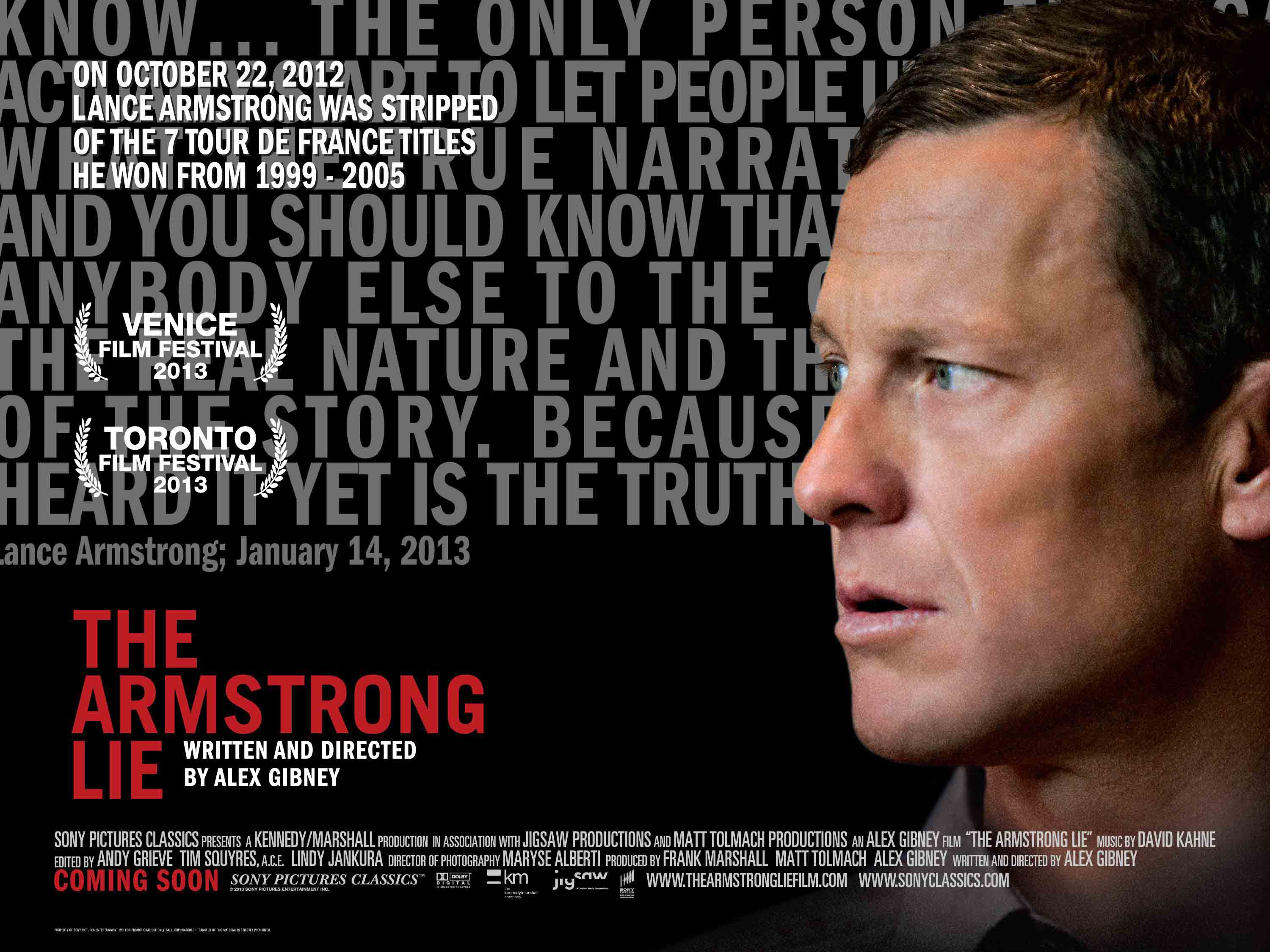
‘The Armstrong Lie’ opens with the man himself speaking to director Alex Gibney just three hours after filming his now infamous interview with Oprah Winfrey, during which he finally came clean about his use of illegal drugs to win his record breaking seven Tour de France wins. The confession came after years of Armstrong vehemently denying such allegations of doping and cheating. Later in the film he goes on to say that the interview was either not enough for people who had long sought the truth or, not enough for those who wanted to believe in the lie.
Gibney’s documentary originally began filming in 2009 and was posed to tell the story of the comeback of a legendary retired athlete after four years. However, as the evidence against Armstrong cheating his way to victory on all seven of his titles began to look more and more damning, Gibney was left with no choice but to abandon the project. At one point we are shown footage of Armstrong apologizing to Gibney for ‘fucking up’ the documentary after it became clear during the late stages of the tour that he was not going to win. It’s hard not to watch that and laugh knowing that his performance will indeed throw the documentary’s narrative off track but for entirely different reasons.
Indeed, much of the film holds our attention because we know of what is to eventually come. The first hour or so is used to recount Armstrong’s glorious ascension to the top of his game, with much emphasis put on his battle with testicular cancer before ever winning the title, and his subsequent wins during his prime. The film evokes feelings almost akin to those you feel when watching Titanic – you know that eventually Armstrong’s career is going to hit a massive iceberg that will sink his reputation faster than you can say: “I’ll never let go”.
Gibney is generally very fair in his portrayal of the disgraced champion. He does not condemn him at any point nor does he attempt to sugarcoat what Armstrong did and the lies he told. He frequently admits that he is constantly unsure of whether to believe Armstrong about anything given how long he had lied to him in the past. As it happens, at many points in the film we are left with a very bad impression of Armstrong. He is shown to be a vindictive character on many occasions; turning his back on friends he’s had for years the minute they refuse to continue facilitate his lies, often setting out to ruin their lives. And perhaps most distastefully it would seem that Armstrong often exploited his cancer as a way of dodging tricky questions about doping and making people feel bad for even asking.
“I didn’t live a lot of lies. But I did live one big one” says Armstrong at the beginning of the film. Whether or not that big lie was justified, Alex Gibney leaves it up to you…
4/5 stars
Gary Grimes




Leave a Reply